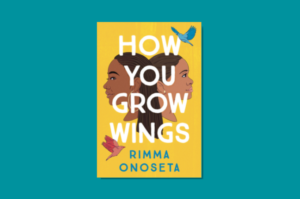
Nigerian-American writer Clarkisha Kent has a fascinating memoir out titled Fat Off Fat On: A Big Bitch Manifesto. As the title suggests, Kent’s book is an honest portrayal of Kent’s journey navigating U.S. society and its myriad problems as a Black, fat, and queer woman. Fat Off Fat On was published on March 7 by the Feminist Press at CUNY and raises questions about
Kent’s memoir is a brutally honest unpacking of the many and varied kinds of compounded problems one faces as “a fat, Black, queer woman in a society obsessed with heteronormativity.” U.S. society is not kind to people who do not fit the images of women we see on the media, and Kent’s memoir describes the uneven battle between pursuing “high self-esteem” goals amidst body dysmorphia, homophobia, anti-Blackness, and respectability politics.
The University of Chicago graduate has been addressing similar issues in her widely published body of work. She also created #TheKentTest, a media litmus test designed to evaluate the quality of representation that exists for Black women and women of color in film and other media. Fat Off and On brings a deeply personal dimension to some of the questions about body image and representation that she has been examining.
Kent writes about her experience as a dark-skinned, first-generation American with her own inner battles of mental health issues and intergenerational trauma. Fighting against internal and external pressures, at times Kent’s body felt like a “cosmic punishment,” as she calls it.
How do women like Kent therefore navigate personal discovery and self-love? That is the core question at the heart of Fat Off, Fat On: A Big Bitch Manifesto. Although the journey may be long and ruthless at times, Kent realizes quite a few lessons: “that her body is a gift to be grown into, that sometimes family doesn’t always mean home, and how even ill-fated bisexual romances could free her from gender essentialism.”
Nothing goes untouched in the memoir. The 16 chapters covers a set of wide-ranging experiences, from Kent’s traumatic family life to a her bi-sexual awakening, to life in college and later in California. Describing her lived experiences with humor and vulnerability, Kent’s debut illuminates how fatphobia often intertwines with other oppressions. In order to begin the difficult and joyful work of setting ourselves free, we must first address the violence etched upon our minds and bodies by societal pressures and media stereotypes.
Fat Off and On is a hard book to put down. It effortlessly holds the reader’s deep attention. Like many manifesto-style writing, Kent’s style is irreverent and boundary-pushing. Her voice is relatable and confidential but also laced with humor and cutting honesty. Reading the book feels like being in a room with Kent listening to her tell story after story about her fascinating life.
Kent’s memoir ends with the inspiring words – “it is fatness’s demand for space to live, for space to grow, for space to move, for space to expand, for space to prosper, and for space to love openly and freely that makes its existence quite radical.”
In an interview, Kent explains how dismantling anti-fat bias shapes her understanding of liberating our minds and bodies:
When I wrote that passage, I was literally thinking about the act of taking up space. When you are a fat person, especially one who’s tuned in — because you can be fat and just be just not paying attention — you notice how much people really want to diminish the amount of space you have to work with or exist in. It goes to airplane seats, that’s the reason why they’re so small. People say it’s because they’re cheap, and there’s truth to that because of capitalism, but a lot of it is because airlines are like, “We can make these seats this small because we don’t intend on having fat people fly.” It’s the same thing with clothes: “We don’t really want y’all in our stores, so we really won’t cater your sizes.” The idea is to push us out of greater society.
The strength of this book lies in the way it uncovers all the biases that gets normalized in a culture built on a very limiting idea of the body. Fat On and Off is a rallying cry for a new politics, philosophy, and aesthetics of the body. Kent’s portrayal of her intersectional identity, resisting societal oppressions at multiple levels is the heart of the book.
If you are someone who likes to read about real people’s lived experiences and struggles having to do with identity and representation such as Edward Enninful’s A Visible Man, then Kent’s memoir needs to be on your reading list!
***
Buy Fat Off Fat On: Amazon (US) | The Feminist Press at CUNY | Amazon (UK)









COMMENTS -
Reader Interactions